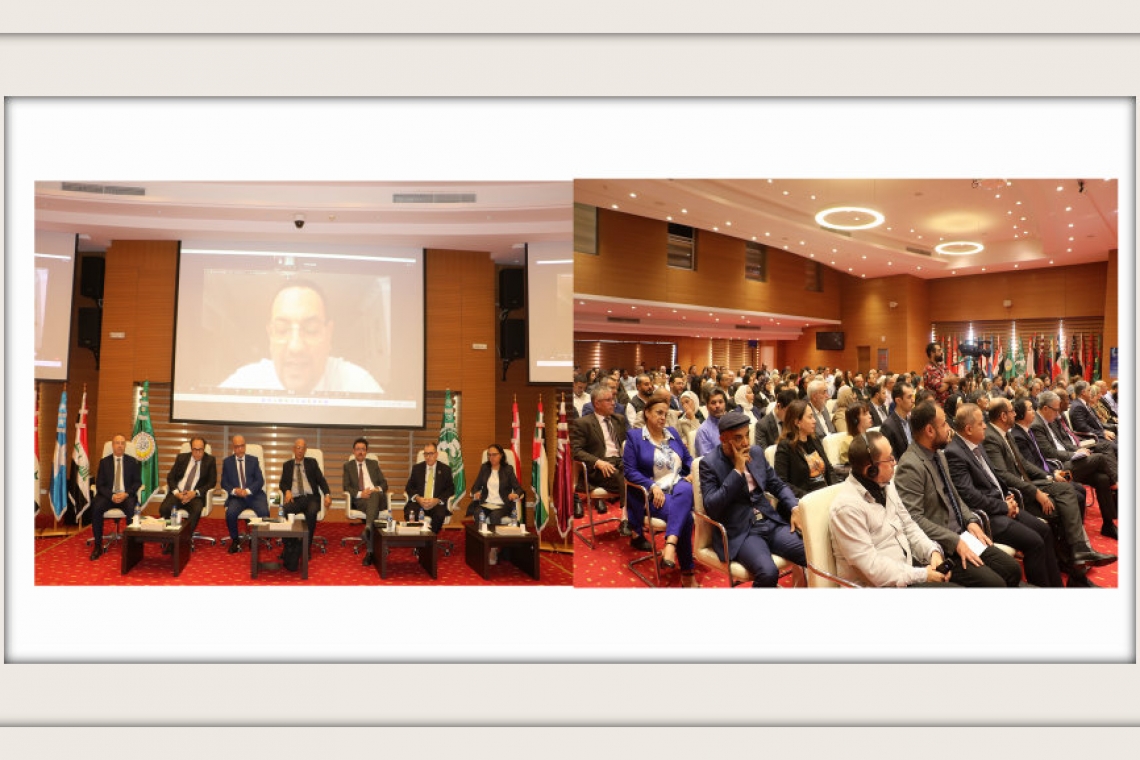The Second Arab International Conference on Artificial Intelligence in Education, organized by ALECSO (ICT Department), kicked off on October 29, 2024 at ALECSO headquarters in Tunis. The two-day event featured participation from 20 Arab and non-Arab countries, along with relevant international experts.
This second edition of the Conference addresses AI and its applications in education, with focus on the latest technological developments in Generative AI and Large Language Models (LLMs).
The Conference is designed to provide a platform for showcasing and analyzing successful international and Arab experiences in using AI in education. It brings together education experts, specialists, and policymakers to share views and experiences, as well as to explore the challenges and ethics associated with the application of AI in education.
The Conference was inaugurated by Dr. Mohamed Jemni, Director of ICT, who delivered a speech on behalf of the Director-General of ALECSO, Dr. Mohamed Ould Amar. He welcomed all guests and participants, and expressed his best wishes for the success of the conference, organized by ALECSO jointly with its regional and international partners. He underscored the importance of this event as a significant step towards a deeper understanding of the impacts of AI on education and the opportunities it offers to enhance learning and improve the quality of education in the Arab world. He indicated that ALECSO is closely monitoring these transformations, and has launched several projects aimed at promoting the use of AI in education. Foremost among these are the “AI in Education” project, the Blockchain-based certificate authentication project, and the ALECSO OER Hub which offers students and teachers access to free and comprehensive learning content.
In this context, Dr. Jemni announced the launch of the Skills for Innovation (SFI) project, the fruit of collaboration with Intel, Millennium@EDU Sustainable Education, and Classera for Smart Learning. This project is designed to prepare Arab youth for the future, by equipping them with the skills necessary for innovation in the digital age. It focuses on integrating 21st century skills into educational systems through technology-based solutions. He indicated that ALECSO, through its subsidiary institution in Damascus, is currently working on translating the training content of the project into Arabic, which will allow schools, teachers, and students in the Arab world to fully benefit from this significant training program.
Speaking as Director of ICT at ALECSO, Dr. Mohamed Jemni underscored the importance of the Conference, which addresses recent developments in the field of AI, particularly generative AI and large language models (LLMs), and explored their impact on the future of education in the Arab world. Large language models (LLMs), he explained, are AI systems capable of understanding and generating human language by processing vast amounts of text data. Their applications range from generating automated texts and assisting in writing and translation, to supporting interactive dialogue systems.
Following the opening statements, a high-level panel session on national AI strategies was held, featuring prominent figures from the Tunisian Ministry of Higher Education and Scientific Research; the Egyptian Ministry of Higher Education and Scientific Research; the Arab Federation for Digital Economy (UAE); the Arab Academy for Science, Technology, and Maritime Transport; Millennium@EDU Sustainable Education; and the Arab Information and Communication Technology Organization.
The agenda of the Conference features several sessions covering various topics including “Generative AI and LLMs”; “Recent developments in generative AI and their impact on education”; “Challenges and ethics in using generative AI in education”; “Successful international and Arab experiences in applying AI in education”; “Educational intelligence: AI in education and sustainability”; and “Technical challenges in using AI in education.” A session was devoted to the launch of the “Skills for Innovation” project, in partnership with Intel, Millennium@EDU, and Classera.
The opening session of the Conference was also attended by high-level guests, researchers, academics, and students.



